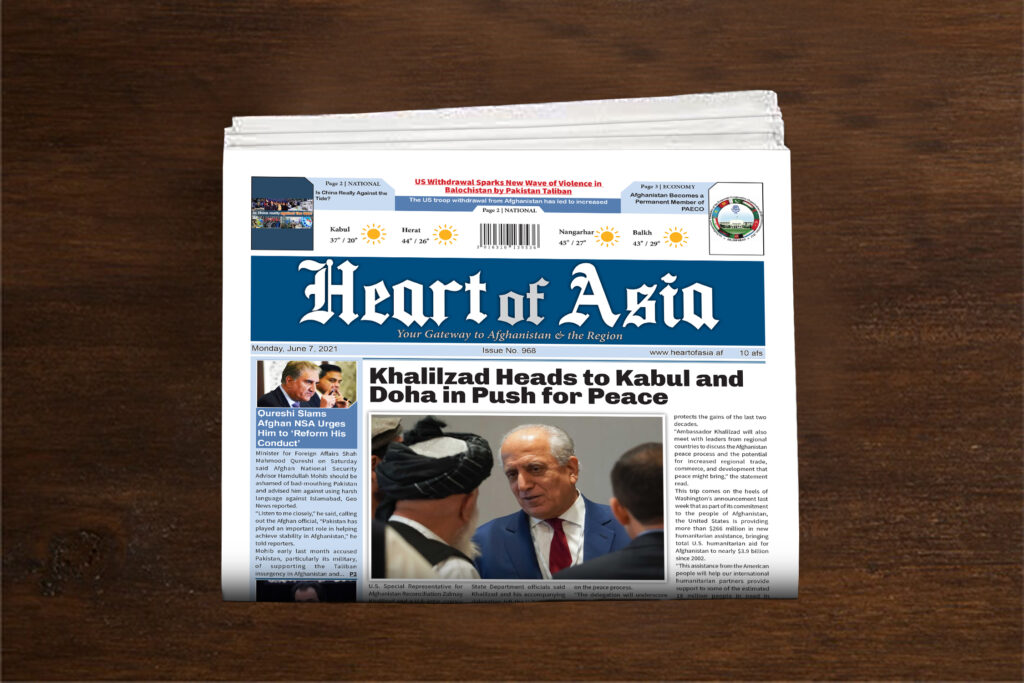U.S. Special Representative for Afghanistan Reconciliation Zalmay Khalilzad and a U.S. inter-agency delegation, including the National Security Council, Department of Defense, and USAID will meet with Afghan government officials and other political leaders this week to discuss the peace process.
In a statement issued by the U.S. State Department officials said Khalilzad and his accompanying delegation left the U.S. on Friday and will visit Kabul, Doha and other countries in the region.
“In Kabul, the delegation will meet with the Afghanistan government, other political leaders, and civil society representatives, including women’s groups, to hear their views on the peace process.
“The delegation will underscore enduring U.S. support for Afghanistan’s development and a political settlement that will end the war,” the statement read.
“In Doha, Ambassador Khalilzad will continue to encourage both sides to make tangible progress towards a political settlement that protects the gains of the last two decades.
“Ambassador Khalilzad will also meet with leaders from regional countries to discuss the Afghanistan peace process and the potential for increased regional trade, commerce, and development that peace might bring,” the statement read.
This trip comes on the heels of Washington’s announcement last week that as part of its commitment to the people of Afghanistan, the United States is providing more than $266 million in new humanitarian assistance, bringing total U.S. humanitarian aid for Afghanistan to nearly $3.9 billion since 2002.
“This assistance from the American people will help our international humanitarian partners provide support to some of the estimated 18 million people in need in Afghanistan, including more than 4.8 million Afghans internally displaced,” the statement read.
“This funding will allow our partners to provide lifesaving protection, shelter, livelihoods opportunities, essential health care, emergency food aid, water, sanitation, and hygiene services to respond to the needs generated by the ongoing COVID-19 pandemic.
“Furthermore, this assistance helps to address protection needs for the most vulnerable Afghans. This includes women and girls facing particular risks, including gender-based violence, as a result of the pandemic and decades of conflict,” read the statement.
